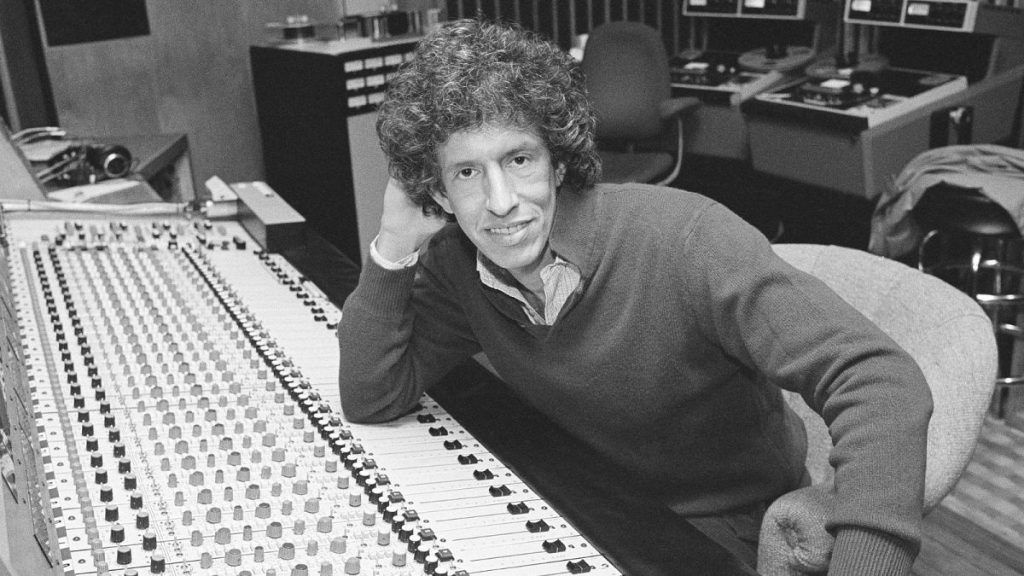Richard Perry, a prominent figure in the music industry, passed away at 82, leaving behind a rich legacy of hit records spanning various genres. From pop and R&B to dance and country, Perry’s versatile production skills helped elevate numerous artists to the pinnacle of their careers. He was a “musician’s producer,” fostering collaborative environments that nurtured creativity and allowed artists to explore their full potential. His work encompassed a broad spectrum of musical styles, reflecting his open-minded approach and his ability to connect with artists from diverse backgrounds. His influence can be heard on iconic albums by Carly Simon, Rod Stewart, Harry Nilsson, The Pointer Sisters, and many others, each bearing the distinct mark of Perry’s production prowess.
Perry’s journey through the music world began early, witnessing firsthand the electrifying performances of rock ‘n’ roll pioneers like Little Richard and Chuck Berry. He was present at pivotal moments in music history, such as Otis Redding’s unforgettable set at the Monterey Pop Festival and a recording session for the Rolling Stones’ seminal album “Let It Bleed.” His life was intertwined with the era’s leading musical figures, fostering friendships with artists like Paul McCartney, Mick Jagger, and John Lennon. These connections provided him with unique insights into the creative processes of some of the most influential musicians of his time. His social circle extended beyond music, encompassing relationships with actors like Elizabeth Taylor and Jane Fonda, further solidifying his presence within the cultural landscape of the era.
One of Perry’s most remarkable achievements was orchestrating a near-reunion of the Beatles, a feat few could have imagined just three years after the band’s highly publicized breakup. Through his established relationship with Ringo Starr, for whom he produced the commercially successful album “Ringo,” Perry brought together Starr, John Lennon, and George Harrison for the recording of “I’m the Greatest.” This collaborative effort not only demonstrated Starr’s individual talent but also provided a tantalizing glimpse of what a full Beatles reunion might have sounded like. Although Paul McCartney was absent from this particular session, he contributed to the album by co-writing and arranging “Six O’Clock,” along with providing backing vocals. Perry’s ability to navigate the complex interpersonal dynamics and facilitate such a momentous occasion is a testament to his diplomatic skills and his deep connections within the music industry.
Perry’s collaborations with Carly Simon yielded one of the most enduring and enigmatic hits of the 1970s, “You’re So Vain.” The song’s cryptic lyrics fueled widespread speculation about the identity of the subject, adding to its mystique and longevity. Perry played a crucial role in shaping the song’s sound, particularly highlighting Klaus Voormann’s distinctive bassline and incorporating Mick Jagger’s backing vocals, both of which contributed to the song’s unique sonic texture. While the true inspiration behind the song remains a subject of debate, Perry’s insight into its creation offers a valuable perspective on this iconic piece of musical history.
Beyond his contributions to iconic 1970s hits, Perry’s career continued to flourish in subsequent decades. He produced successful singles like The Pointer Sisters’ “Neutron Dance” and DeBarge’s “Rhythm of the Night,” demonstrating his ability to adapt to evolving musical trends. He also worked with established artists like Ray Charles and Art Garfunkel, further diversifying his impressive portfolio. His collaboration with Rod Stewart on “The Great American Songbook” series proved particularly successful, rejuvenating Stewart’s career and showcasing his versatility as a performer. This collaboration emerged from a period of personal and creative struggle for Stewart, and Perry’s guidance and support were instrumental in helping him navigate these challenges and produce a series of acclaimed albums.
Richard Perry’s impact on the music industry extends far beyond individual hits or successful albums. He was a facilitator, a nurturer of talent, and a connector of artists. His ability to create collaborative environments where musicians could thrive allowed for the creation of some of the most enduring music of his time. His legacy is not just in the songs themselves but also in the countless artists he influenced and the relationships he forged throughout his remarkable career. His passing represents a significant loss to the music community, but his contributions will continue to resonate for generations to come.














